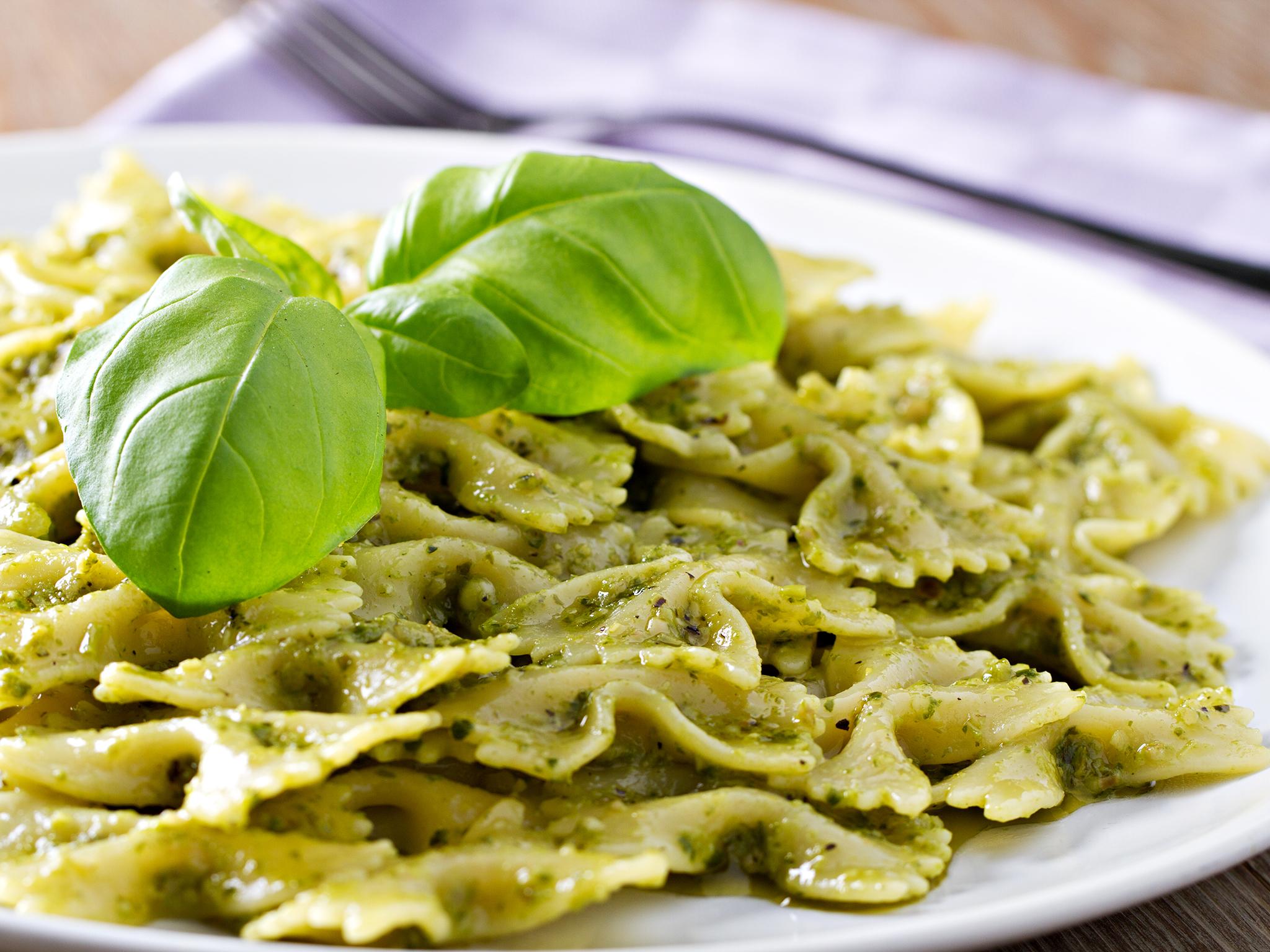Pesto sauces 'contain more salt than McDonald's burgers'
A health campaign group has called on the Government to 'act tough' on manufacturers

Someopular pesto sauces contain more salt than a McDonald’s hamburger, according to research by health campaigners.
Italia Organic Vegetarian Pesto No.5 Basil and Italia Pesto No.1 Classic Basil by Sacla were found to be 30 per cent saltier than seawater, and contain two and a half times of salt per 100g than peanuts, Consensus on Salt and Health (Cash) found in a survey.
Cash flagged that the manufacturer increased the amount of salt in its pesto since 2009 to contain 1.5g per serving, which is more than a McDonald's hamburger. This came despite pressure on the food industry to cut down on the substance.
The research also showed that no pesto brands featured the Department of Health’s recommended nutrition labelling despite some being the “worst offenders when it comes to salt”, and Cash urged Public Health England (PHE) to “act tough” on the industry.
Napolina Green Pesto with Basil, Gino D'Acampo Pesto alla Genovese Basil Pesto and Truly Italian Genovese Basil Pesto were found to contain between 2g and 2.5g of salt per 100g. Meanwhile, Tesco Reduced Fat Red Pesto, Aldi's Specially Selected Italian Pesto Genovese and Italian Pesto Rosso, Jamie Oliver Green Pesto and Sainsbury's Taste The Difference Pesto Alla Genovese all include less than 1g of salt per 100g.
Some 44 per cent of the pesto sauces have enough saturated fat to warrant a red label on packaging.
Cash highlighted that many parents use pesto to season their children’s pasta dishes, and warned that using sauces high in salt could heighten their risk of developing high blood pressure, strokes, and heart attacks as adults.
The findings come as a the deadline to hit 2017 salt reduction targets approaches.
Cash assistant nutritionist Sarah Alderton said: “Pesto is an everyday product eaten by adults and children alike, but people might not realise just how salty it can be.
"None of the products we surveyed could be described as 'healthy', so consider having pesto in smaller portions, less frequently, or try other pasta sauces lower in salt and fat instead.“
Graham MacGregor, Cash chairman and professor of cardiovascular medicine at Queen Mary University of London, said: “The UK was leading the world in salt reduction, but so far PHE is doing little to ensure that the 2017 salt targets are met, and has not confirmed that they are setting new targets to be achieved by 2020.
“This is a national scandal as we know we can save thousands of people from unnecessary strokes and heart attacks if population salt intake is reduced, and furthermore, it is the most cost effective health policy.”
A Sacla spokeswoman said: “We work hard to make authentic Italian products which are good quality, safe to eat and should be enjoyed as part of a balanced diet.”
Additional reporting by PA
Join our commenting forum
Join thought-provoking conversations, follow other Independent readers and see their replies
Comments
Bookmark popover
Removed from bookmarks